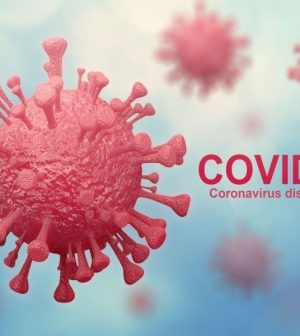- Recognizing the Signs of Hypothyroidism
- 10 Strategies to Overcome Insomnia
- Could Artificial Sweeteners Be Aging the Brain Faster?
- Techniques for Soothing Your Nervous System
- Does the Water in Your House Smell Funny? Here’s Why
- Can a Daily Dose of Apple Cider Vinegar Actually Aid Weight Loss?
- 6 Health Beverages That Can Actually Spike Your Blood Sugar
- Treatment Options for Social Anxiety Disorder
- Understanding the Connection Between Anxiety and Depression
- How Daily Prunes Can Influence Cholesterol and Inflammation
Coronavirus Antibodies Appear to Stop Reinfection for Months

Protective immune system antibodies that develop after being infected with COVID-19 last for at least a few months, a new study suggests. And reinfection does seem to be relatively rare.
That could have big implications for public health and societies, including allowing people to return to physical workplaces and go to school, the researchers said.
“The data from this study suggest that people who have a positive result from a commercial antibody test appear to have substantial immunity to SARS-CoV-2, which means they may be at lower risk for future infection,” researcher Dr. Lynne Penberthy, the associate director of the U.S. National Cancer Institute’s Surveillance Research Program, said in an institute news release.
“Additional research is needed to understand how long this protection lasts, who may have limited protection, and how patient characteristics, such as comorbid conditions [other illnesses], may impact protection. We are nevertheless encouraged by this early finding,” she said.
Antibody tests detect antibodies produced by the immune system in response to a specific foreign substance or infection, such as SARS-CoV-2.
For the study, researchers used a variety of sources to collect antibody test results for more than 3 million people. The data was sourced from two large health care data analytics companies, five commercial laboratories, electronic medical records and records from private insurers.
Nearly 12% of these blood tests came up positive for antibodies to COVID-19, the investigators found. Most of the remaining tests were negative.
Over time, the number of those with antibodies to COVID-19 dwindled to between 3% and 4%, and after three months less than 1% still had antibodies to COVID-19, the findings showed.
Still, the overall results are encouraging, said one expert in infectious disease.
“As more data accrues it has become clear that COVID-19 does follow the pattern of other infectious diseases in that recovery is associated with a level of protection from reinfection that persists for a significant period of time,” said Dr. Amesh Adalja, a senior scholar at Johns Hopkins Center for Health Security, in Baltimore. “It will be critical to learn how long this immunity, which is conferred by antibodies and T-cells, persists.”
The report was published online Feb. 17 in JAMA Internal Medicine.
More information
For more on COVID-19, head to the U.S. Centers for Disease Control and Prevention.
SOURCES: Amesh Adalja, MD, senior scholar, Johns Hopkins Center for Health Security, Baltimore; U.S. National Cancer Institute, news release, Feb. 24, 2021
Source: HealthDay
Copyright © 2026 HealthDay. All rights reserved.










